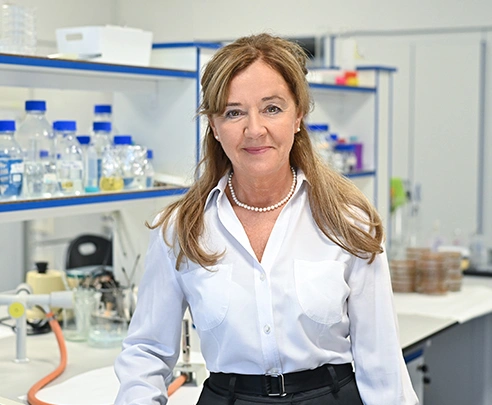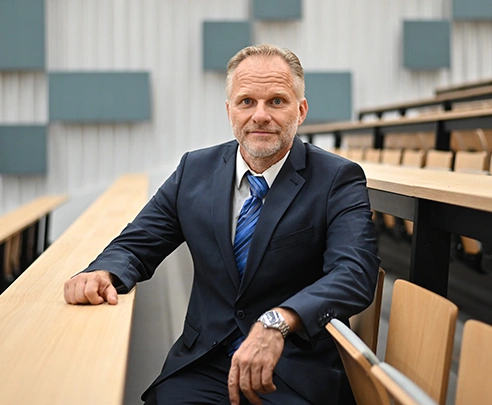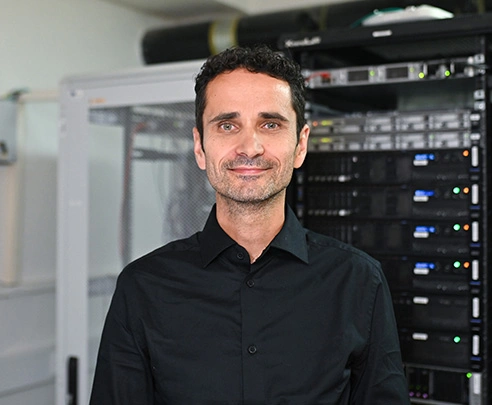Doc. Ing. Peter Peciar, PhD, is a university teacher, an engineering professor at the Process Engineering programme at the Faculty of Mechanical Engineering of the Slovak University of Technology in Bratislava. He is one of the most important academics of technology transfer in Slovakia. Both in science and education, he works with processes and the construction of unique equipment and machinery for various industries. He also focuses on materials research and innovative technologies.
The beginnings of Peter Peciar's scientific career probably started in his childhood while playing with sand. In his father's laboratory, he watched how dry sand can be poured and wet sand can form the foundation of sandcastles. He was already discovering the foundations of particle mechanics, the scientific discipline that fascinates him to this day. Process engineering is a discipline that bridges traditional mechanical and chemical engineering. In addition to the design and construction of machinery, equipment and process lines it also examines the associated mechanical, thermal, hydraulic, diffusion, biological and other processes that will take place within them. As he says himself: „I breathe life into machines.“ He specialises mainly in the mechanics of particulate matter, which consists of particles of different sizes, shapes, and properties, such as powders, granular materials or granules. „I design processes and equipment that can transform these substances from a primary raw material to a final product – a transformation of size and shape with the desired properties,“ Peter Peciar explains.
He builds his scientific work on three-state system mechanics with a particular solid state, and on developing unconventional processing of powders into agglomerated materials. This is an area that is so specific, scientifically and research-wise, that their institute receives unique assignments and requests for innovative projects for industrial practice from companies not only in Slovakia but also abroad. Almost all of the projects involve students who gain invaluable experience of working as part of a research team. They receive first-hand experience with real conditions for implementing innovation.
„Process engineering is characterised by the fact that it combines several disciplines and fields of science. It doesn’t work in isolation, but is based on cooperation. This is what I try to instil in our students. We often visit production facilities to show our students the technologies and applications that we developed,“ he says. He encourages the research and doctoral colleagues working with him on scientific and research projects and successful practical applications to keep exploring and innovating. He mentions the project of a unique, small automated brewery controlled through an augmented reality application as an example of a successful student project. This idea was born out of a graduate's interest in beer and brewing.
In the field of applied research, Peter Peciar is the author and co-author of five European and several dozen Slovak patents and utility models and has received several important awards for his work. He considers the unique technological production line for multicomponent granular fertilizers, for which the Slovak University of Technology sold the first ever international patent licence abroad, to be the biggest project of the university's technology transfer. Associate Professor Peter Peciar is proud of the fact that his scientific expertise and innovative ideas can translate the dreams and visions of smart people from academia and industry into reality.
„During the science festival Starmus, which took place in Bratislava in May 2024, I listened to fascinating lectures about the universe. I was left amazed at how far we can get nowadays. I still believe that technical sciences will soon allow us to teleport or travel in time and deep space,“ Peter Peciar reveals. At the moment, however, his feet are firmly on the ground and he has no desire to go anywhere: his whole universe now revolves around his first-born baby daughter.


